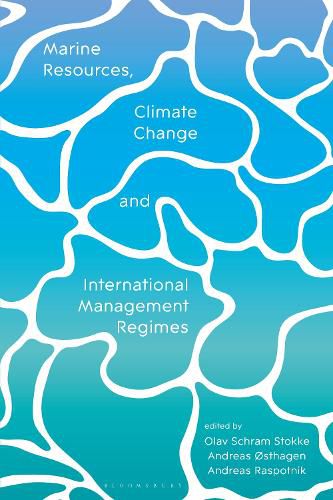Readings Newsletter
Become a Readings Member to make your shopping experience even easier.
Sign in or sign up for free!
You’re not far away from qualifying for FREE standard shipping within Australia
You’ve qualified for FREE standard shipping within Australia
The cart is loading…






When changes in the oceans impact fisheries, are states able to handle the management of these changes amongst themselves, or are they locked in patterns and mechanisms that prove inflexible and inefficient in dealing with rapid external environmental changes? This open access volume explores how international institutions and regimes set up to manage marine resources - predominantly fisheries - are adapting to the effects of climate change and the related consequences for the geographic distribution of these resources.
In the Barents Sea, cod is expanding north-eastwards, while in the Norwegian Sea significant changes in abundance, distribution and migration patterns can be observed in pelagic species such as mackerel. In the Southern Ocean, the combined effect of increasing temperatures with associated declines in sea ice, ocean acidification and changes in circulation is likely to affect the geographical distribution of krill.
These developments put established international management regimes under pressure. In this interdisciplinary research volume, world-leading marine biologists, international lawyers and political scientists join efforts to study the resilience of Arctic and Antarctic marine resource management institutions to large-scale shifts of major marine stocks.
The eBook editions of this book are available open access under a CC BY-NC-ND 3.0 licence on bloomsburycollections.com.
$9.00 standard shipping within Australia
FREE standard shipping within Australia for orders over $100.00
Express & International shipping calculated at checkout
When changes in the oceans impact fisheries, are states able to handle the management of these changes amongst themselves, or are they locked in patterns and mechanisms that prove inflexible and inefficient in dealing with rapid external environmental changes? This open access volume explores how international institutions and regimes set up to manage marine resources - predominantly fisheries - are adapting to the effects of climate change and the related consequences for the geographic distribution of these resources.
In the Barents Sea, cod is expanding north-eastwards, while in the Norwegian Sea significant changes in abundance, distribution and migration patterns can be observed in pelagic species such as mackerel. In the Southern Ocean, the combined effect of increasing temperatures with associated declines in sea ice, ocean acidification and changes in circulation is likely to affect the geographical distribution of krill.
These developments put established international management regimes under pressure. In this interdisciplinary research volume, world-leading marine biologists, international lawyers and political scientists join efforts to study the resilience of Arctic and Antarctic marine resource management institutions to large-scale shifts of major marine stocks.
The eBook editions of this book are available open access under a CC BY-NC-ND 3.0 licence on bloomsburycollections.com.